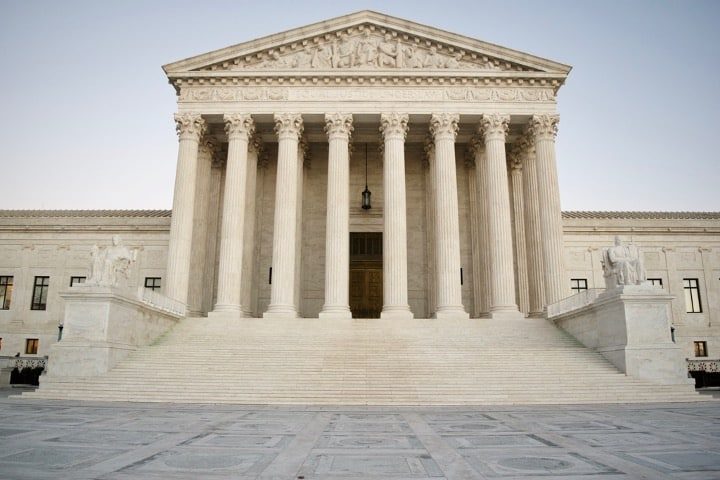
On Monday, the Supreme Court of the United States ordered the state of New York to respond to a lawsuit filed against them by the State of Missouri alleging collusion between state prosecutors and the Department of Justice in the prosecution of Republican presidential nominee Donald Trump. Andrew Bailey, Missouri’s attorney general, maintains that Missourians and all Americans “deserve to know to what extent the prosecutions of a prominent presidential candidate are being coordinated by the federal government.”
On Wednesday, New York Attorney General Leticia James, long a vocal critic of Trump, responded, asking the Supreme Court to block the case, arguing that Missouri’s claims are “patently meritless” and that intervening in the matter would set a “dangerous precedent” that could undermine the integrity of the Supreme Court.
The Missouri Suit
Bailey spoke about the lawsuit on Timcast on Tuesday:
The Supreme Court has taken notice of the lawsuit we filed against the State of New York. You’ve got a rogue prosecutor and collusive judiciary in New York who have prosecuted Donald Trump under specious legal grounds. The prosecution is replete with constitutional procedural error, ethics violations. It should have never happened. I’ve never seen such a gross miscarriage of justice.
He further claimed that the prosecution of Trump by Manhattan District Attorney Alvin Bragg was simply a campaign strategy. As he noted when announcing the suit against New York:
Given the timing (Bragg charged Trump only after Trump declared his candidacy for President), the transparent weakness of the charges, and the effect the charges have in keeping Trump off the campaign trail, there is substantial reason to suspect the Biden administration has coordinated with Bragg and others to bring prosecutions against Trump.
Is It a Matter for the High Court?
According to Bailey, “The Founding Fathers contemplated there would be disputes amongst the states, and they codified a method by which we could redress those grievances in Article III, Section 2 of the United States Constitution.” He noted that actions between states have their own docket, separate from the appellate docket we normally hear about.
However, James argued, the Court should block the lawsuit because it does not truly constitute a state vs. state matter. Her office wrote in a 48-page response to the Supreme Court:
Missouri’s suit is based entirely on an ongoing criminal case between the Manhattan DA and former President Trump and does not present an actual controversy between sovereign States. Moreover, former President Trump has already raised, and the New York state courts are already adjudicating, the same issues Missouri seeks to raise, and Missouri’s claims are patently meritless.
The Gag Order
Bailey further argued that the gag order issued by Judge Juan M. Merchan constitutes a free-speech violation.
“The gag order that the court instituted in New York is unconstitutional. It violates President Trump’s right to speak, [and] it violates our right to hear from him,” he told Timcast.
When issued, a gag order is typically used to assure a defendant has a right to a fair trial. However, says Bailey:
Here, the state, the prosecutor, got the gag order. If Donald Trump wants to put himself at risk by speaking out publicly about the trial he should be allowed to do that, and we have a right to hear from him.
Bailey also claims that electors in Missouri were denied access to Trump while the trial was ongoing. Further, they could potentially be denied access to him should he be forced to serve any prison time.
Trump was ultimately found guilty of 34 counts of falsification of business records in the first degree, felonies in New York State, which now allows Democrats to run ads claiming that Trump is a felon running for president. In actuality, the court convicted Trump of minor paperwork violations for the way he reimbursed attorney Michael Cohen for payments of $130,000 in “hush money” to porn actress Stormy Daniels in 2017.
The Missouri lawsuit asks that the Supreme Court find that New York illegally interfered with the presidential election. It also asks it to rule that any potential sentencing in the Trump case be postponed until after the election. Trump’s legal team is in the midst of appealing the original guilty verdict.




